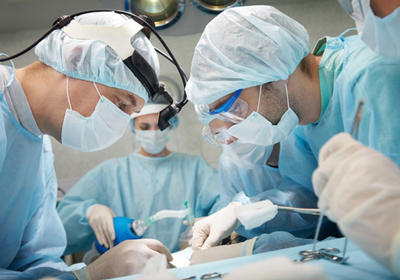Johns Hopkins Study: US Surgeons Make Shocking Errors
Friday, December 21, 2012 10:08 AM
By Kathleen Walter and Nick Tate
 |
More than 4,000 times each year, American surgeons make serious medical mistakes — operating on the wrong site of a patient’s body, performing an incorrect procedure, or leaving a sponge or towel still inside a person after an operation — a new study has found.
Healthcare specialists call these mistakes “never events” because they should never occur in medicine. But the new Johns Hopkins study of malpractice claims, published online in the journal Surgery, found they occur multiple times a day in the U.S. — with 80,000 errors documented in hospitals between 1990 and 2010.
Researchers calculated that a U.S. surgeon sews up a patient with a foreign object still inside 39 times a week, performs an incorrect procedure 20 times a week, and does a wrong-site surgery 20 times a week.
Renowned neurosurgeon Russell Blaylock, M.D., told Newsmax Health that fatigue is likely a driving factor in many cases. He adds that while the odds of becoming a “never events” victim are long, there are steps patients can take to stay safe.
“In the United States about 53 million surgeries are done every year, and so when you look at the number of complications — some 4,000 — that’s far less than 1 percent,” notes Dr. Blaylock, author of The Blaylock Wellness Report.
“Now, you have to realize surgeons work extremely long hours, they take calls, they’re up all night operating, and then they have to operate the next day, so fatigue seems to be one of the major problems involved here.”
Dr. Blaylock also points out that the study findings date back two decades. Hospitals and surgeons have taken many steps since 1990 to lower the number of “never events,” which have “have really fallen rather significantly” in recent years, he explains.
“A lot of the bad problems that were occurring early on have been addressed, and we’re seeing a fall in that, so it’s really not as big a problem as it appears,” he says.
SPECIAL: Dr. Blaylock Reveals Secrets to Surviving Your Next Hospital Stay
Still, Dr. Blaylock notes there are steps surgery patients can take to reduce their risks of becoming a “never events” victim — beginning with certifying that your surgeon is highly qualified and experienced.
“The important thing is to make sure that your surgeon is competent in that type of surgery,” he says. “Some surgeons try to operate outside of their specialty, so you have to talk to your doctor to make sure they’ve done enough of these operations to know how to do it properly.”
Other precautions you can take before going in for surgery:
• Make sure your hospital is well-equipped for the operation you need and has procedures in place to reduce the risk of medical errors.
• Ask that a mark be made on the site of your operation before your procedure. “For instance, if you’re having a hip surgery [ask] that they mark the side on your skin before they put you to sleep,” he suggests, “so they don’t get the wrong hip done.”
• Ask to schedule your operation early in the day, when a surgeon is likely to be fresher. “If you’re operated on late in the afternoon, fatigue becomes a greater problem,” he says.
SPECIAL: Dr. Blaylock Reveals Secrets to Surviving Your Next Hospital Stay
© 2012 Newsmax. All rights reserved.